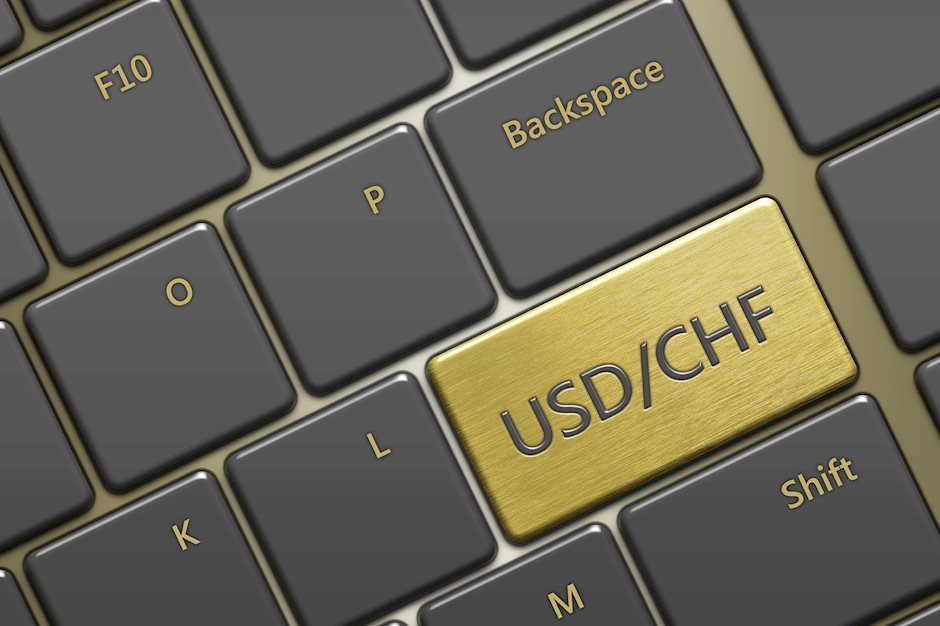USD/CHF drifts higher above 0.8650 amid bullish US Dollar
- USD/CHF trades in positive territory around 0.8655 in Monday’s early European session.
- The bets of a less aggressive Fed rate cuts support the USD.
- The Middle East geopolitical tensions could boost the Swiss Franc.

The USD/CHF pair trades on a firmer note near 0.8655 on Monday during the early European trading hours. The prospect that the US Federal Reserve (Fed) will proceed with modest rate cuts over the next year underpins the Greenback against the Swiss Franc (CHF). However, the ongoing geopolitical tensions in the Middle East might cap the pair’s upside.
A shift in Fed policy expectations to a more moderate easing phase after a slew of stronger-than-expected US economic data provides some support to the US Dollar (USD) broadly. Meanwhile, the US Dollar Index (DXY), measuring the USD’s value against six major currencies, currently trades near the three-month high of 103.60.
US rate futures have priced in a 95% odds that the Fed will cut rates by 25 basis points (bps) in November, and a 5% chance that the US central bank will hold its rate, according to LSEG estimates. "Speculation that the Fed could follow September's 50 bps rate cut with another similarly sized move has been blown away by a round of data pointing to a resilient U.S. economy," noted Jane Foley, head of FX strategy, at Rabobank in London.
On the Swiss front, the uncertainty surrounding the US election and geopolitical risks might prompt higher demand for safe-haven currencies like the CHF. The local news agency Aljazeera reported early Monday that the Israeli army launched a series of new air strikes across Lebanon, including Beirut’s suburbs, after it announced the targeting of Hezbollah’s al-Qard al-Hassan financial institution’s offices.
Swiss Franc FAQs
The Swiss Franc (CHF) is Switzerland’s official currency. It is among the top ten most traded currencies globally, reaching volumes that well exceed the size of the Swiss economy. Its value is determined by the broad market sentiment, the country’s economic health or action taken by the Swiss National Bank (SNB), among other factors. Between 2011 and 2015, the Swiss Franc was pegged to the Euro (EUR). The peg was abruptly removed, resulting in a more than 20% increase in the Franc’s value, causing a turmoil in markets. Even though the peg isn’t in force anymore, CHF fortunes tend to be highly correlated with the Euro ones due to the high dependency of the Swiss economy on the neighboring Eurozone.
The Swiss Franc (CHF) is considered a safe-haven asset, or a currency that investors tend to buy in times of market stress. This is due to the perceived status of Switzerland in the world: a stable economy, a strong export sector, big central bank reserves or a longstanding political stance towards neutrality in global conflicts make the country’s currency a good choice for investors fleeing from risks. Turbulent times are likely to strengthen CHF value against other currencies that are seen as more risky to invest in.
The Swiss National Bank (SNB) meets four times a year – once every quarter, less than other major central banks – to decide on monetary policy. The bank aims for an annual inflation rate of less than 2%. When inflation is above target or forecasted to be above target in the foreseeable future, the bank will attempt to tame price growth by raising its policy rate. Higher interest rates are generally positive for the Swiss Franc (CHF) as they lead to higher yields, making the country a more attractive place for investors. On the contrary, lower interest rates tend to weaken CHF.
Macroeconomic data releases in Switzerland are key to assessing the state of the economy and can impact the Swiss Franc’s (CHF) valuation. The Swiss economy is broadly stable, but any sudden change in economic growth, inflation, current account or the central bank’s currency reserves have the potential to trigger moves in CHF. Generally, high economic growth, low unemployment and high confidence are good for CHF. Conversely, if economic data points to weakening momentum, CHF is likely to depreciate.
As a small and open economy, Switzerland is heavily dependent on the health of the neighboring Eurozone economies. The broader European Union is Switzerland’s main economic partner and a key political ally, so macroeconomic and monetary policy stability in the Eurozone is essential for Switzerland and, thus, for the Swiss Franc (CHF). With such dependency, some models suggest that the correlation between the fortunes of the Euro (EUR) and the CHF is more than 90%, or close to perfect.
Author

Lallalit Srijandorn
FXStreet
Lallalit Srijandorn is a Parisian at heart. She has lived in France since 2019 and now becomes a digital entrepreneur based in Paris and Bangkok.

















